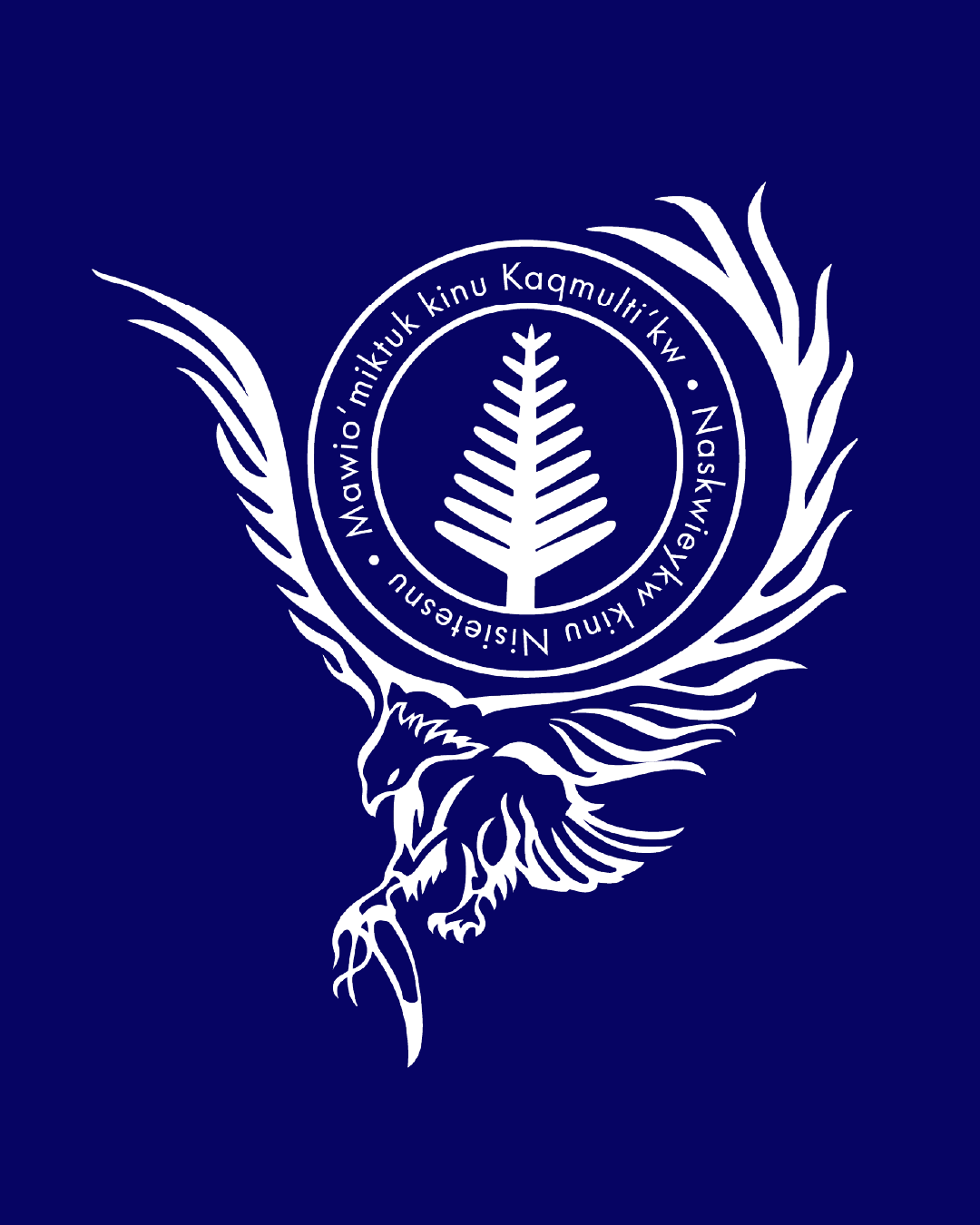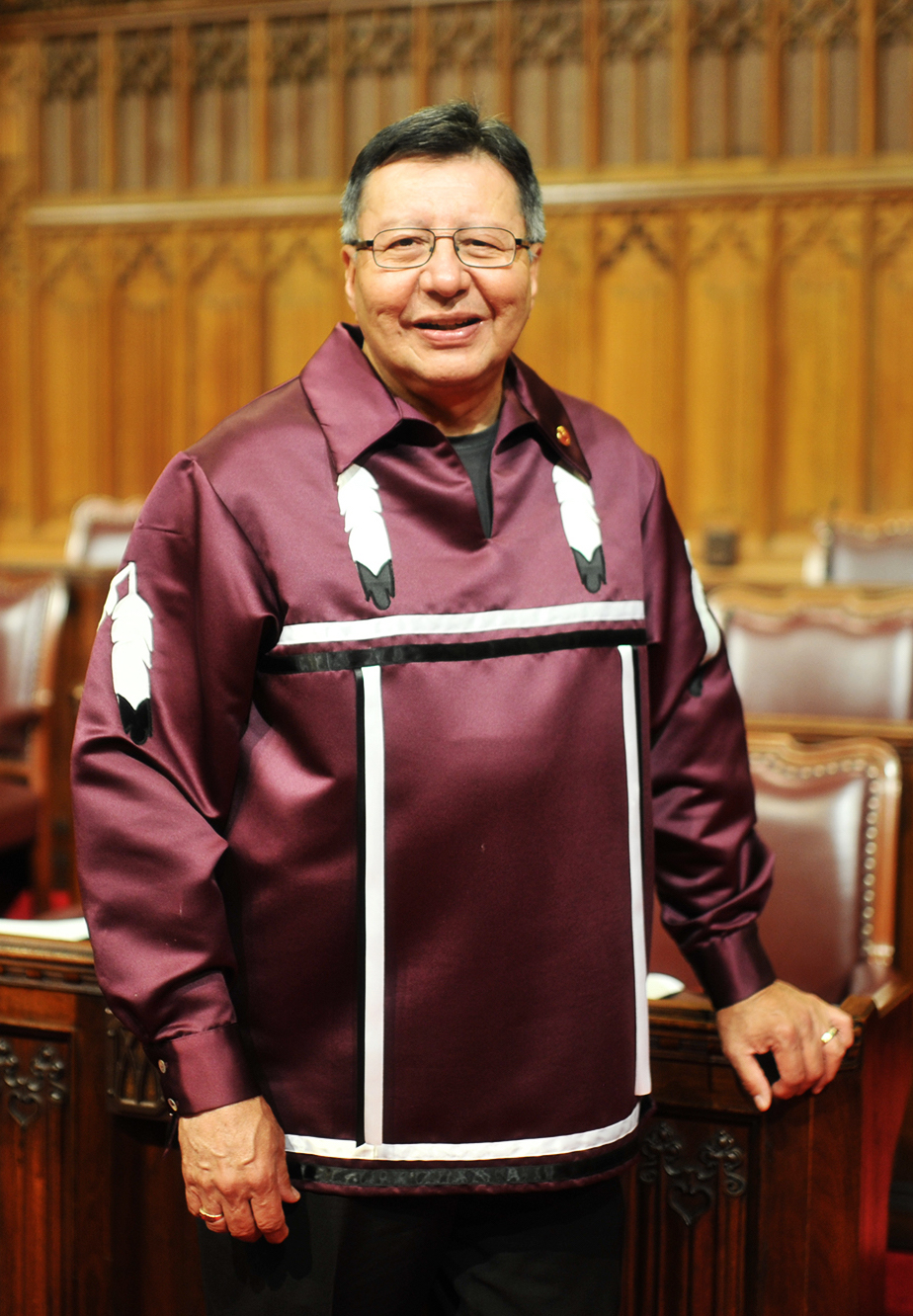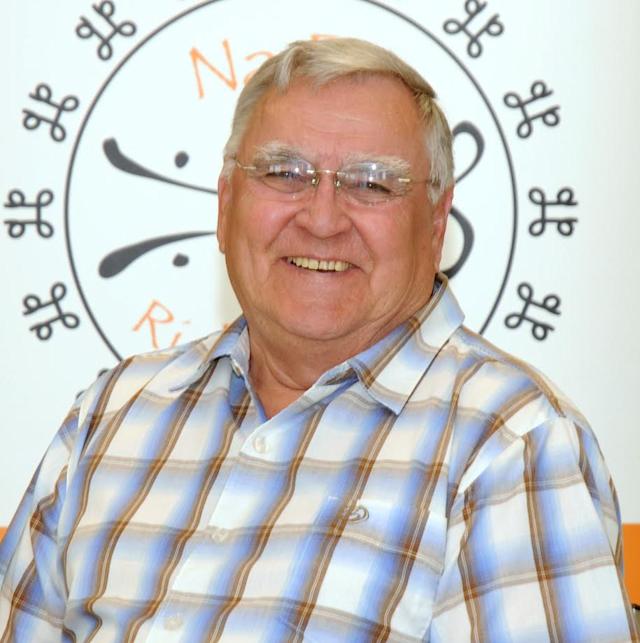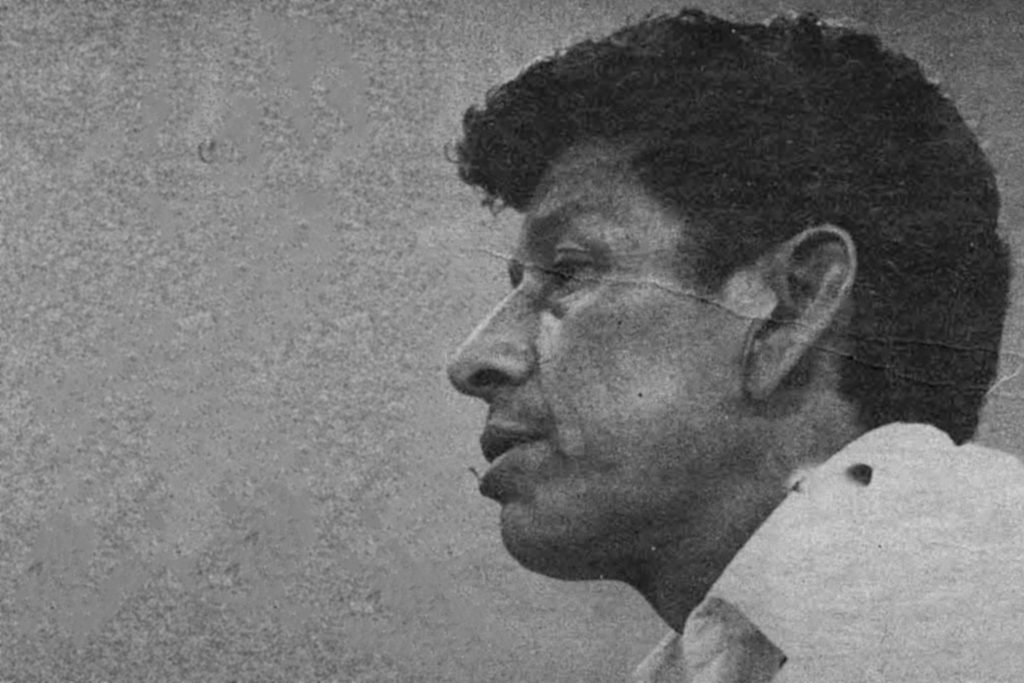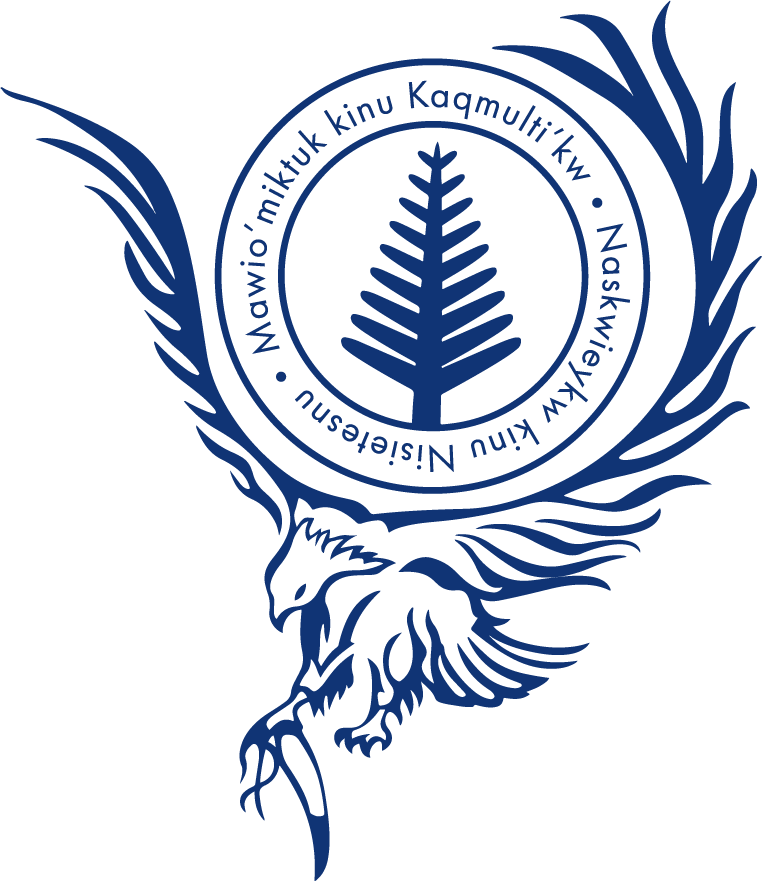
Formation and Evolution of the Union of Nova Scotia Mi’kmaq
Formed in 1969 in direct response to the federal government’s proposed White Paper, the Union of Nova Scotia Mi’kmaq (UNSM) emerged as a unified political voice for Mi’kmaq communities across the province. With strong support from the Mi’kmaw Grand Council, UNSM was created to protect Aboriginal and treaty rights, assert sovereignty, and ensure the continuity of Mi’kmaq governance in the face of assimilationist policies.
How UNSM Was Formed Formed
The UNSM was formed in 1969 as a political association by all First Nations chiefs in Nova Scotia at the time, in response to the federal government's White Paper policy aiming to abolish the Indian act, which would have eliminated Indian Status, and therefore Indigenous Rights in Canada. In response to this, across Canada “Unions” were formed to advocate for recognition of rights.
In Nova Scotia, all chiefs, with support from the Grand Council, agreed to this unified political organization, originally named the Union of Nova Scotia Indians (UNSI), later changed to Union of Nova Scotia Mi’kmaq (UNSM) in 2018.
The organization was originally formed to represent Aboriginal and treaty rights, with strong support from the Mi’kmaw Grand Council. This included giving out cards to recognize membership in the Mi’kmaw community, in anticipation that Indian status and unique rights were no longer recognized, due to the proposed white paper policy. Grand Council worked in strong collaboration with UNSI at this time, having been involved in this early formation.
Initially UNSM had an elected executive, including a President, First and Second Vice Presidents, and a Secretary-Treasurer. Then, in 1988, the organization transitioned into a tribal council, adding program and service delivery to its political mandate.
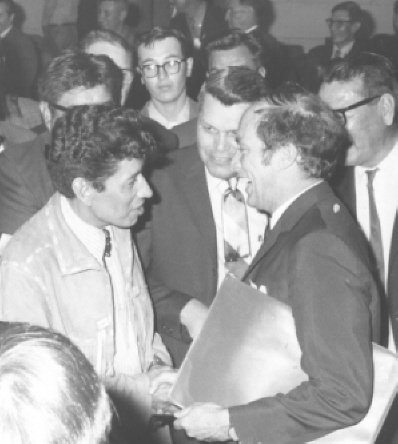

.jpg)
Grand Council’s role in UNSM Formation
Kji-keptin Alexander Denny was a prominent leader within the Mi’kmaw Grand Council and the UNSM, serving as Kji-Keptin (Grand Keptin) and later president for UNSM. In 1966, he was appointed the lifelong role of Kji-keptin (Grand Keptin) of the Grand Council.
Shortly after being appointed as Kji-keptin, in 1969, he joined forces with Joe B. Marshall, Noel Doucette, Greg Johnson and Stan Johnson and together they formed UNSI (now UNSM), where he served two separate terms as president, 1974- 1976 and 1992-1995.
Kji-keptin Alexander Denny played a crucial role in preserving Mi'kmaw governance and asserting treaty rights. His leadership was instrumental in connecting the traditional authority of the Grand Council with the political advocacy of the UNSM.
During his time as president, he facilitated collaboration between the Grand Council and the UNSM, which reinforced Mi’kmaw sovereignty.
His legacy continues to influence Mi'kmaw political structures and self-determination at UNSM.
Historical Collaboration between the Mi’kmaq Grand Council & UNSM
The Union of Nova Scotia Mi'kmaq (UNSM) and the Mi'kmaq Grand Council share an interconnected history.
The UNSM and the grand council have historically worked together to ensure that Mi'kmaq treaty rights were recognized and respected. They have also worked to ensure that Mi'kmaq communities are empowered to protect their land, resources, and cultural practices.
The Grand Council's involvement in events and political actions organized by the UNSM underscores its continued role in guiding political decisions based on Mi'kmaq laws and customs.
Legal Advocacy and treaty rights:
The UNSM, with strong involvement from the grand council, have played a significant role in leading legal challenges and negotiations on treaty rights.
This has included:
- Simon Case (1985): Recognized the 1752 Treaty and affirmed hunting rights.
- Marshall Decision (1999): Confirmed Mi’kmaq fishing and trading rights, leading to significant changes in Atlantic Canada’s fishing industry.
- Stanley Johnson Case (1997): Established the right to tax-free tobacco on reserves.
Organized Hunt between the UNSM and Grand Council in 1988:
In 1988, the UNSM and Grand Council organized a hunt as an assertion of treaty rights.
The hunt aimed to challenge the non-recognition of Mi’kmaq hunting rights by the Province of Nova Scotia, despite the 1752 Treaty and the precedent set by the Simon case, which affirmed Mi’kmaq hunting rights.
The organized hunt was symbolic of asserting sovereignty and reinforcing traditional governance structures, highlighting the role of the Grand Council in upholding treaty rights.
MOdern Political Evolution ofUNSM & Grand Council
Explore the Evolution of Relationship between UNSM and Grand Council, and their Political Leadership in Nova Scotia.
As you'll see, over time, the political landscape has evolved with the emergence of new political organizations representing Mi’kmaq.
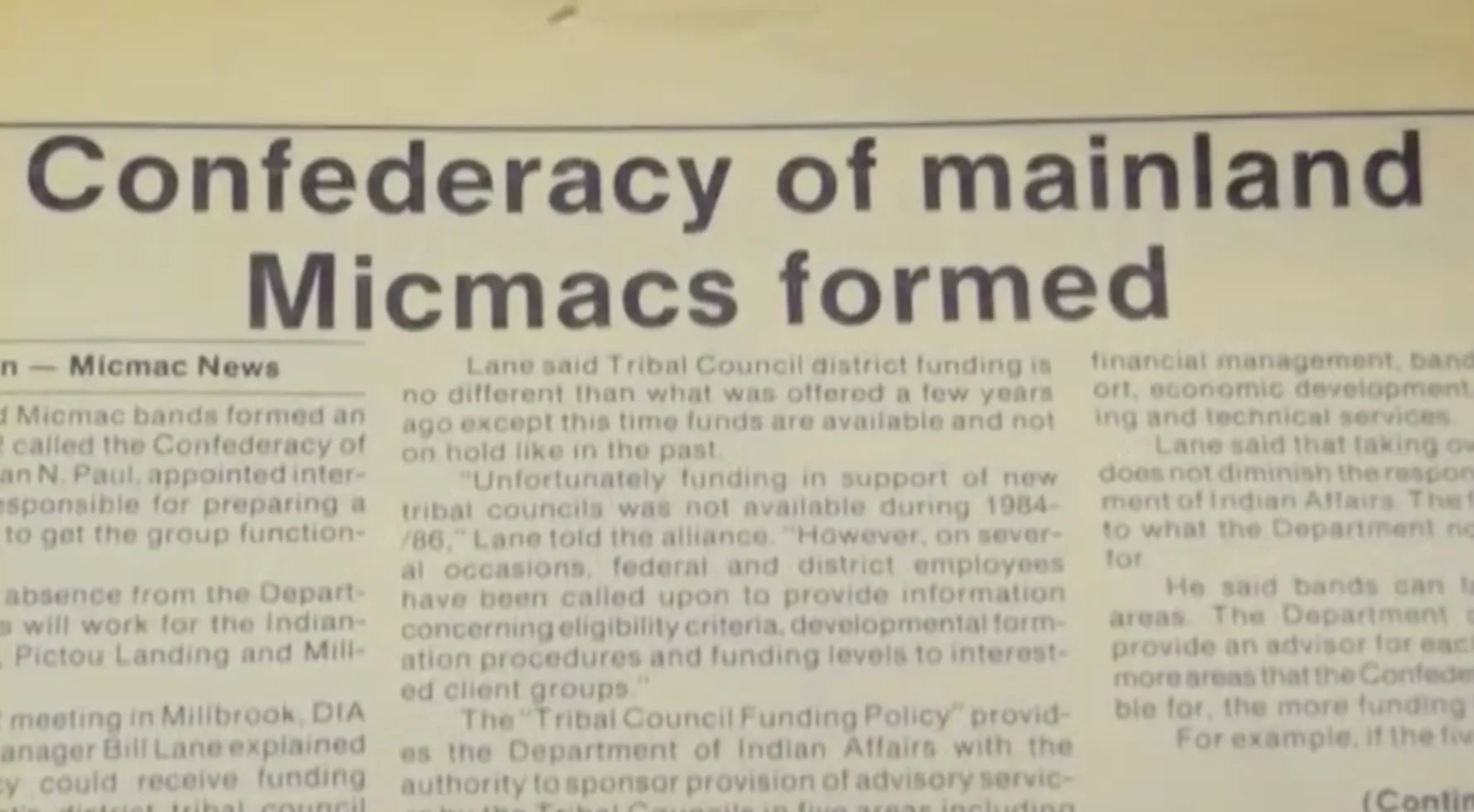
1986
Confederacy of Mainland Mi’kmaq Formation
In 1986 the Confederacy of Mainland Mi’kmaq was incorporated, separating political leadership between CMM serving the 8 communities on Mainland, and UNSM serving primarily Unama’ki communities.
*The Confederacy of Mainland Mi'kmaq (CMM) formation led to five First Nations leaving UNSM, and later 8 representing the Mainland communities
While this led to separation in political leadership within the province, both organizations continued working together especially in support of treaty rights, both playing a significant role in legal cases including the Marshall Decision.
1996
End of public elections for leadership roles at UNSM
The Union of Nova Scotia Mi'kmaq moved to a constitution-based structure vs. public elections for primary officer roles.

1997
The Tripartite Forum
In 1997, the tripartite forum was established to support the relationship between Mi’kmaq, federal, and provincial governments, and to identify and advance Mi’kmaw priorities UNSM and Grand Council played significant role in advocating for the creation of the tripartite forum, and continue to act as a core liaison for administering the forum today.
Established to mediate issues between Mi’kmaq, federal, and provincial governments. UNSM and Grand Council played significant role in advocating for the creation of the tripartite forum.
2001
2001 Negotiation Table
In January 2001, The Mi'kmaq of Nova Scotia, Nova Scotia, & Canada release a joint statement affirming their commitment to work together to resolve outstanding issues & begin a negotiation process to consider issues of aboriginal and treaty rights.
This marked the recognition of Mi’kmaq Aboriginal title and rights, a significant political victory.
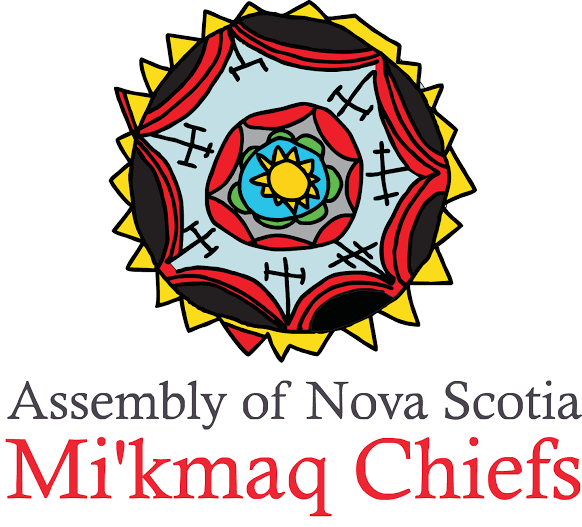
2004
Formation of the Assembly of Nova Scotia Mi’kmaq
In 2004, the political relationship between the Mi’kmaq communities of mainland Nova Scotia and Unama’ki (Cape Breton) became more unified with the establishment of the Assembly of Nova Scotia Mi'kmaq Chiefs.
The Assembly brought together Chiefs from across the province to form a single, collective political voice for all Mi’kmaq communities in Nova Scotia. Today, the Assembly serves as the primary political body representing Mi’kmaq interests, particularly in treaty negotiations and other legal and political matters.
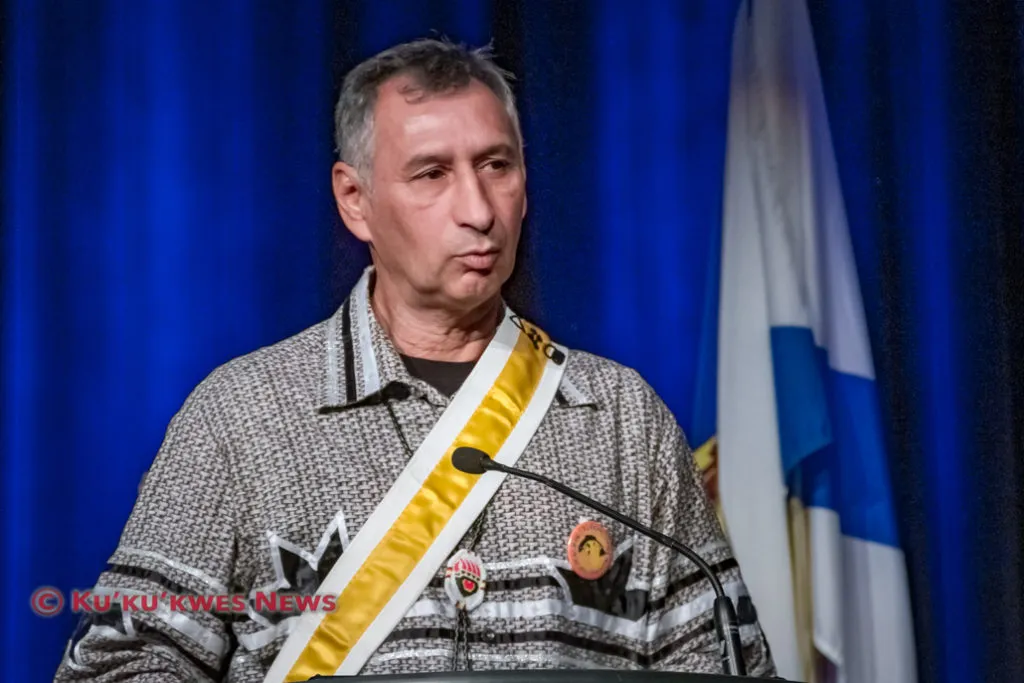
Today
Where We've Come
As the political landscape has evolved, UNSM's role has shifted towards service delivery, and community development activities while the Assembly continues to assert political sovereignty and negotiate with federal and provincial governments.
Today, the Grand Council maintains their relationship with the UNSM through their participation on UNSM’s board, where they continue to shape the direction of the organization.
Kji Keptin Antle Denny, District Chief Alex Christmas, and Grand Chief Norman Sylliboy currently sit on the UNSM board as non-voting members, offering input and insight in the work of the organization, and maintaining the organizations strong relationship to the Grand Council.
Role of UNSM an Incubator for Mi’kmaq Organizations
UNSM facilitated the creation of several Mi’kmaq organizations, including the Mi’kmaw Native Friendship Centre, Native Communications Society, Mi’kmaq Family and Children’s Services, Mi’kmaq Legal Services Network, the Tripartite Forum, and Ulnooweg.
These organizations addressed community needs in health, education, justice, business, and cultural preservation.

.jpg)
Vision for the Future
UNSM aims to emphasise returning to traditional governance structures, reclaiming district-level collaboration among Mi’kmaq communities. The union will also continue to advocate for restructuring funding relationships with the Crown to reflect nation-to-nation agreements.
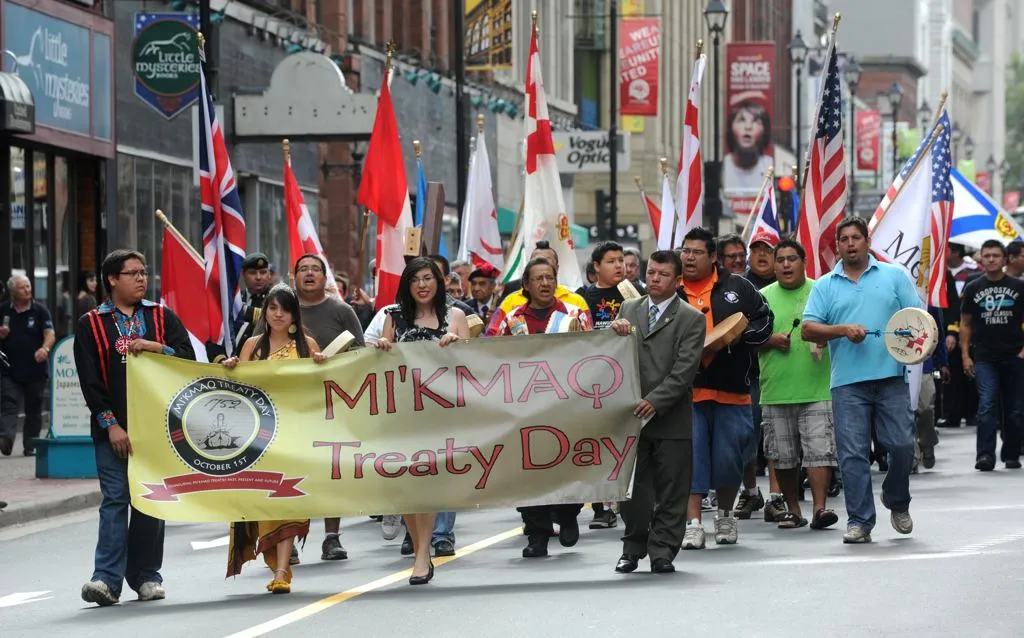
Challenges and Opportunities
Supporting and educating communities on issues of self-governance and treaty rights.
Supporting enhanced political unity and governance innovation within Mi’kmaw districts.


